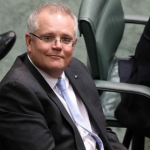“A Potential Discrimination Act”: An Interview With Former High Court Justice Michael Kirby

Right now, transgender people in Japan are forced to undertake gender reassignment surgery in order to change the sex on their identity documents. And while some wish to, others don’t want to undergo the procedure, which entails sterilisation.
In a recent opinion piece he wrote for a Japanese paper, International Bar Association Human Rights Institute co-chair Michael Kirby took aim at this law, asserting “there is no excuse for continuing a regime of forcing sterilisation on people”.
The former Australian High Court Justice explained that when Japan “instituted its legal gender recognition law in 2004, it was a major turning point in how the government treated issues of gender and sexuality”. However, it’s high time it removed this requirement as other nations have.
The Rudd government got rid of the same stipulation from the process of changing gender on Australian passports in August 2013. And most states have done the same in relation to birth certificates. Although, it’s hoped that NSW and Queensland will hurry up and follow suit.
“The wrong direction”
However, while the Australian government has removed forced sterilisation laws, it’s about to table a piece of legislation that has dire implications for the rights of transgender people. Indeed, this bill goes even further and undermines the rights of all minorities.
The Religious Discrimination Bill 2019 purports to be about protecting those of faith, although it does this in a very questionable manner: rather than build a shield against prejudice, it constructs a legal edifice allowing the religious to treat others in discriminatory ways.
If passed, the legislation would allow anyone of faith to make remarks that would otherwise breach anti-discrimination laws if they can prove it was in line with their religion. And it sets up doctors to have the option of refusing certain treatments if they aren’t in accordance with their creed.
To say this would be dragging the whole nation of Australia back in time is an understatement. These laws would undermine the anti-discrimination framework that’s been drafted over the last half century, opening the way for discrimination based on sex, gender, race, age and ability.
A voice of reason
Mr Kirby wrote a letter to the Australian Law Journal last November, in which he expressed his very grave concerns about the religious freedoms agenda. And he pointed to the bill about to go before parliament, as being a direct result of appeasing those who opposed marriage equality.
“Passages of scripture can be found for just about every prejudice known to mankind,” Mr Kirby warned, in relation to the implications of the bill. “They have even been invoked against natural or innocent features of human nature or conduct such as left-handedness and masturbation.”
Sydney Criminal Lawyers spoke to former High Court Justice Michael Kirby about why he’s campaigning to see Japanese transgender laws changed, the detrimental impact the new religious laws would have and how he believes lawyers should be reacting to the bill.
Firstly, in a recent opinion piece in a Japanese newspaper, you argued that Japan’s 2004 gender recognition laws need an overhaul, as currently they force transgender people to undergo sterilisation to obtain legal recognition of their gender identity.
You wrote this piece after the Japanese Supreme Court declined an application to amend these laws. What are the implications of these forced sterilisation laws, both for Japanese transgender people and the nation itself?
The laws in Japan on transgender citizens are much the same as the laws in many countries, most of the countries of Asia, and in particular, those with the Sino-Chinese tradition.
Japanese law has required, quite strictly, that in order to get a new passport or identity pass, which is very important in such societies for day-to-day living, you have to undergo the procedure of gender reassignment.
This involves the removal of your birth sexual organs, the sterilisation of the subject, and substitution attempts at recreating other sexual organs that look a little like the opposite birth sexual organs.
This is a very cruel requirement. It used to be the requirement in Australia. It is not necessary. It is excessive. It is disproportionate.
I attended a conference on this subject in Hong Kong and the organisers, the United Nations Development Programme, called an expert surgeon from Belgium to come along with his slides to demonstrate how radical the procedure is.
Some trans people want it. Some of them don’t want it. If they don’t want it, it ought not to be enforced on them.
And the slides and photographs showing the botched operations, and the radical nature of the surgery, should be shown to anybody who is of the contrary view.
Mr Kirby, you said that in Australia it’s no longer a requirement to undergo gender reassignment surgery to change identity documents, but my next question related to NSW being one of only two Australian jurisdictions where this is still required for birth certificates.
Yes. But, they don’t have to do that in Australia in order to get passports. They can be given their truthful trans status on their passports.
Of course, some countries don’t accept this status and make difficulties for them entering their space. Passports are a federal responsibility that can be changed simply and uniformly throughout Australia.
But, it is true that in some states there is still a requirement for undergoing radical surgery. I think that is something that will change.
And on the issue of the rights of transgender people in this country, the proposed Religious Discrimination Act, which is about to go before federal parliament, would undermine them, along with the rights of the LGBTIQ community in general.
You wrote a letter to the Australian Law Journal last November outlining your misgivings about the proposed laws. Broadly speaking, what are the problems with the bill?
The problems with the Bill are it replaces the generally soft secularism that we have enjoyed in Australia for decades by a hard line law that protects the rights of religious minorities to do and say nasty things towards others. And to get away with it on the basis that saying this or doing it is required by, or consistent with, their religious belief.
For example, a pharmacist will be able to deny the provision of birth control to a woman customer on the basis of the pharmacist’s religious belief.
A school of a religious affiliation will be able to refuse employment to gardeners and tuck shop assistants on the basis that they are not of the same religious belief.
There are many other provisions of the Bill that will entitle religious people to be very assertive. And it isn’t balanced against the protection of the legal rights of minorities or of women.
A person with disabilities can be refused stem-cell treatment by a physician on the basis of the physician’s religious beliefs.
There are many such provisions in the Bill. In my opinion, it is to take a journey in the wrong direction.
This is especially so in Australia, as we don’t have a constitutional, or even a statutory, charter of rights and therefore, this would be giving special rights to people on the basis of their religious beliefs without any countervailing protection of other important human rights, including the human rights of women, the human rights of racial and sexual minorities, and the human rights of other groups, such as disabled people.
You’ve also pointed out that proposed religious discrimination laws are a direct result of marriage equality being passed, and the legislation is a product of “a minority of conservative politicians”. Can you elaborate on this and its likely result?
I’m not against conservative politicians. On some aspects of our government, I myself am quite conservative. But, in terms of these legal provisions, they grow out of internal debates within the Coalition parties, who are currently in government in Australia in the federal sphere.
They were compromises that were struck during the Turnbull government, on the basis that Mr Turnbull would introduce his test of public opinion on same-sex marriage, in the form of a postal survey, and if that came down in favour of same-sex marriage Federal Parliament would enact it. This is what happened. It was enacted.
But, the quid pro quo was that special legal protections had to be given to religious minorities and that without counterbalancing the protection against discrimination of other people. This is a very bad development.
It will not only be there to assert the rights of friendly religions. It will be there to assert the rights of unnamed or unknown religions with strong antagonistic feelings. And that will not be a good thing for peace and harmony in the Australian community.
The Religious Discrimination Bill proposes to enshrine in law that “statements of belief do not constitute discrimination”, which would supersede all federal and state anti-discrimination laws.
What do you think about laws being enacted that would undermine the anti-discrimination framework that’s been built up in this country since the 1970s?
This is simply an example that the way in which the new legislation that is proposed will contradict the way in which we have developed the balancing of other people’s human rights.
A very great philosopher once said that “the right to swing my arm finishes when I hit someone else’s chin”. That is true of the protection of religious freedoms.
The right to have religious freedoms finishes when a person asserting those rights does harm or serious harm to other people. And that is why we have anti-discrimination laws.
There are some people who think that “sticks and stones can break your bones, but words can never hurt you”. I don’t agree with that. I’ve been to the funerals of quite a number of young gay people over my lifetime.
I know how hurtful and painful anti-gay rhetoric is, especially for the young. Especially for people who don’t have support at home, or can’t speak about their predicament with their families, or can’t get love and support from their families.
This is quite unscientific. It is contrary to fundamental human rights. The problem with overriding all the anti-discrimination law is it becomes a one way street. And you can swing your arm. You can swing it endlessly. You can hit many chins. You can do a lot of harm.
Without countervailing protections for the human rights of others is not the way human rights are generally developed or respected in most modern western countries. They should not be part of the legal regime in Australia.
At the moment, they are not. But, this new law, if enacted by the Federal Parliament, will enact restrictions on the rights of many minorities. Not just gay minorities, but also people who are aged, people who are of different religions and women.
And lastly, in another article related to the Japanese transgender laws, you stated that “lawyers should be joiners”. They should join bodies and speak out against injustices and unethical laws.
So, in relation to the proposed religious freedoms laws, Mr Kirby, how do you recommend legal professionals in Australia should be reacting?
There has been too much silence about this Bill, which is on the brink of introduction into Federal Parliament and will seriously change the way in which we have dealt with issues of religious freedom in the past.
Who is calling for protections of religious freedoms? It tends to be people who have extreme views about religious freedoms and want to force their religious views on society, and not adjust to a society of which an increasing percentage is not religious.
The successive census that is conducted in Australia shows the rapid increase in the number of Australians who indicate that their religion is “no religion”. This group is accelerating. In 2011, it was 22 percent. In 2016, it was 30 percent.
I know that because in my home, my partner Johan is no religion. I am still Anglican. I’m quite happy to be Anglican. But, I am not an Anglican who will swing his arm and hit other people’s chins
I respect the right that there are other people in our society, who have different points of view.
But, I also know from long experience that words can hurt. Hate speech can do harm. Stress, pressure and depression can lead to suicide. So, we have to be very careful in changing the integers.
I hope that the Religious Discrimination Bill, which I regard as a potential Discrimination Act, will not be enacted by our Federal Parliament. I hope people will have second thoughts about this measure.







